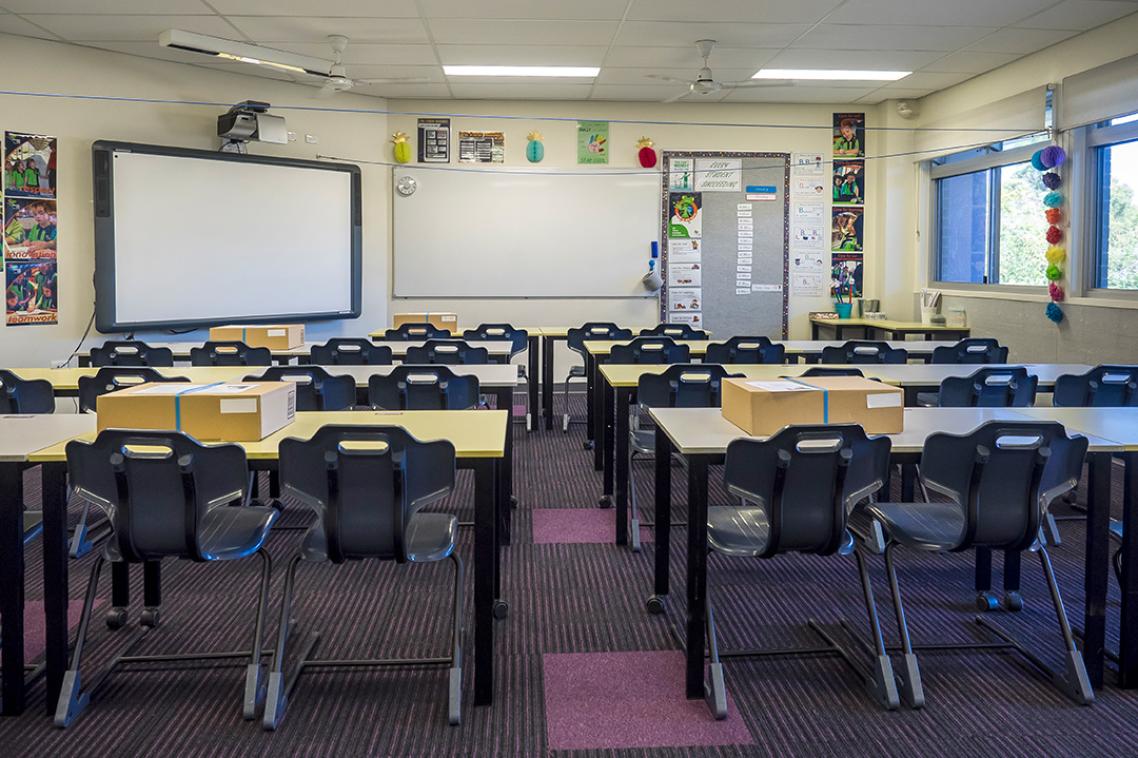Queensland teachers are striking. It's not just about money - they are asking for a profession worth staying in

(Photo credit: Austockphoto/Adobe. )
Queensland’s public school teachers will walk off the job on Wednesday in their first statewide strike in 16 years.
The state’s teaching union has asked parents to keep their primary and high school children home for the day.
While some media reports have framed this as a pay dispute, teachers insist this is about unsafe working conditions, excessive workloads and not enough resources.
Why are teachers striking?
There are, on average, 119 violent incidents in Queensland schools per day.
Teachers describe being punched, kicked and spat on by students and not given any support by their schools.
Particularly since 2018, inclusion policies have brought more students with complex needs into mainstream classrooms. Although the benefits of inclusion are proven, in Queensland this has not been accompanied by extra support.
How rare is a teachers’ strike?
This strike is unusual. Queensland teachers haven’t staged a full-day, statewide walkout since 2009.
Across Australia, such large-scale action is also rare but not unprecedented. New South Wales teachers took part in a strike in 2021 over similar issues: staff shortages, heavy workloads and stagnating pay.
Victorian teachers are also reported to be considering a strike over their latest pay deal.
What’s on the table?
In negotiations this year, the Queensland government has offered teachers an 8% pay rise over three years – with some allowances like A$100 for overnight camps.
But teachers say this won’t keep pace with inflation or with NSW, where a recent deal lifted starting teacher salaries to $87,550 and “experienced” teacher salaries to $125,723. Victorian classroom teachers earn from $79,589 to $118,063.
By comparison, Queensland’s teachers start at $84,078. A “senior” teacher earns $116,729.
Still, this isn’t just about salaries. As Queensland Teachers’ Union president Cresta Richardson says, “pay is important – but it’s not the only issue.”
Teachers want class sizes capped at sustainable levels – they are currently capped at 25 students per class until Year 3 and 28 students per class for years 4 to 10. The OECD average is 21 for primary students.
Teachers also want more time for planning and more support staff – teacher aides and counsellors – to help meet student needs.
These are the conditions that will let them do their jobs. This has been echoed by research in the United Kingdom and Australia, which found increasing workloads are a leading reason teachers give when they leave the profession.
Media coverage has missed the point
Some recent media coverage has portrayed teachers as greedy or out of touch. Lines like teachers “strike over pay […] how do they compare to nurses, police and retail workers?” create a misleading comparison that ignores the growing complexity of teachers’ roles.
Other articles focus on the inconvenience to parents, casting the strike as selfish.
The emotional toll: what the research shows
My own research, drawn from a national study of nearly 2,000 teachers, found alarmingly high levels of compassion fatigue, secondary traumatic stress and burnout.
Compassion fatigue occurs when ongoing exposure to students’ trauma and distress erodes teachers’ emotional resilience. Over time, it leads to exhaustion, disengagement and leaving the profession.
Secondary traumatic stress is the emotional distress that results from indirect exposure to trauma – when teachers repeatedly support students dealing with abuse, neglect, or hardship. It mirrors post-traumatic stress symptoms, including intrusive thoughts, emotional numbing and hypervigilance.
In my study, more than 72% of teachers scored in the moderate-to-high range for secondary traumatic stress, and more than 75% were at moderate or high risk for burnout. Teachers described feeling emotionally drained, detached from their work, and on the verge of leaving the profession due to cumulative emotional demands.
A national issue
This is not just a Queensland problem. Across the country, teachers face rising expectations without the time, training or systemic support to meet them. When asked what would help, teachers say they want better staffing, stronger leadership, professional autonomy and policy reform.
These reforms include a reduction in administrative burdens, which would allow more time for lesson planning and direct support of students. They want adequate school-based mental health services, so emotional care of students does not fall solely on teachers acting as de facto counsellors.
Teachers also seek fair and consistent supports for students with extra needs, including access to specialist staff. In addition, they want protection from violence, including legal reforms that acknowledge the risks they face in their workplaces.
Finally, teachers want dedicated time for professional learning – that does not get overtaken by bureaucratic reporting tasks.
Ultimately, they are asking for a profession worth staying in. One where they’re not afraid at work. One where they have time to teach and where doing your job doesn’t mean burning out.
This article is republished from The Conversation under a Creative Commons license. Read the original article.
Topics
Related articles

Guns, drugs and smuggling – how UQ experts joined a global quest to fight organised crime

‘High-impact sabotage’: spy chief issues grave warning about espionage and sabotage threat
Media contact
UQ Communications
communications@uq.edu.au
+61 429 056 139
